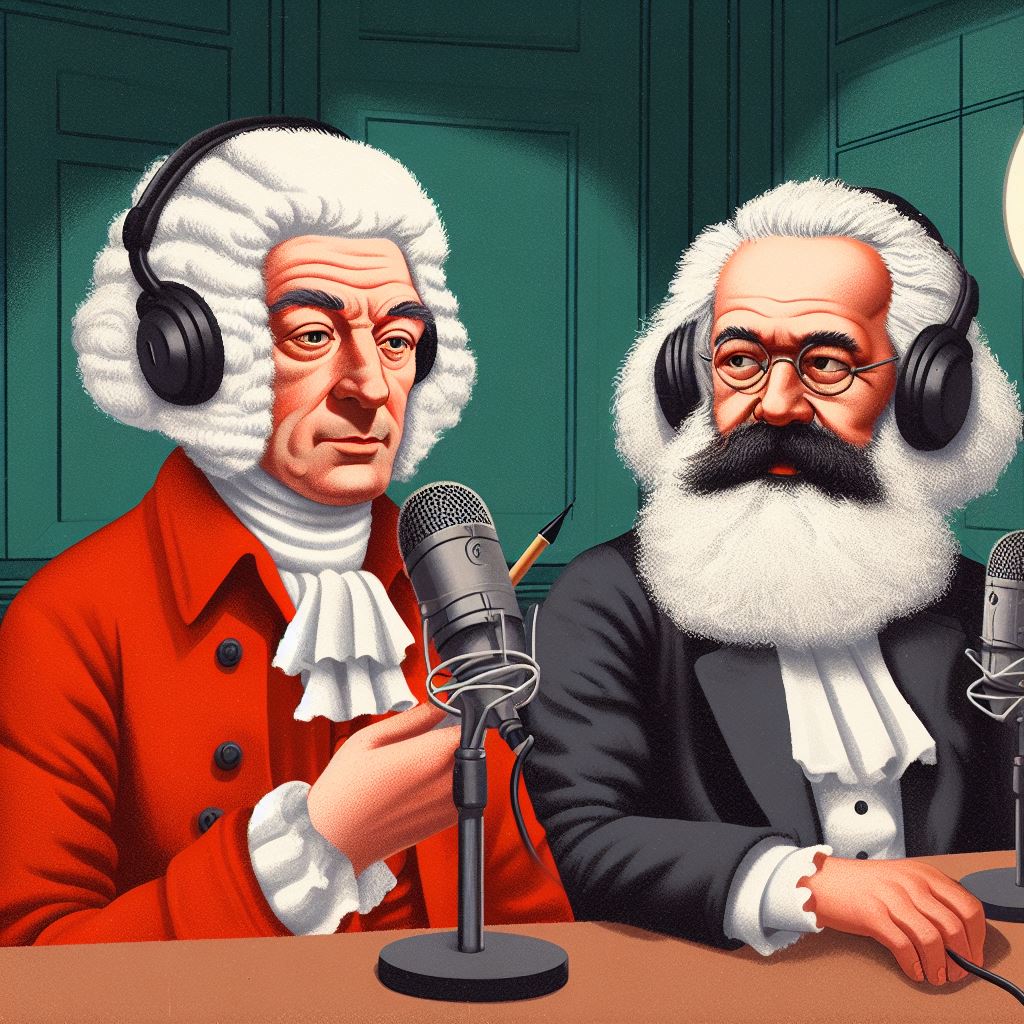Adam Smith’s 300th birthday: the market economy as the only effective tool to fight poverty (Part 1)
SUGGESTED



We know very little about the man Adam Smith. We do not even know the famous Scotsman’s birthday. All we know is the date of his baptism, June 5, 1723 (Julian calendar), which means that, according to our Gregorian calendar, he was baptised on June 16. He never knew his father, a customs official, who died at the age of 44, just a few months before Adam Smith was born.
The most important person in his life was his mother, who not only raised him, but with whom he lived until her death in 1784. Smith never married. We only know that he fell in love twice, but his feelings were not reciprocated, which may have been due to the fact that he was considered rather unattractive.
At the age of 17, he began six years of study at Oxford, but wasn’t impressed by the university. He later spoke disparagingly of his professors, whom he considered lazy. Before the age of thirty, he was appointed professor of moral philosophy at Glasgow University and published his first major work, The Theory of Moral Sentiments. He published only two major works in his entire life, with The Wealth of Nations, published in 1776, being by far the better known. He wrote more books, but he had the manuscripts burned before his death, so we have only these two books and a number of his essays and transcripts of his lectures.
Among those who have never read Smith’s books, he is sometimes seen as a proponent of extreme selfishness, even, perhaps, as the spiritual father of the Gordon Gekko style extreme capitalist, who exclaims “Greed is good!” in the movie Wall Street. However, this is a distorted image that stems from the fact that Smith strongly emphasised the self-interest of economic subjects in his book The Wealth of Nations. But this picture is most definitely a misrepresentation.
Empathy as a fundamental concept
The first chapter of his book Theory of Moral Sentiments begins with a section “Of Sympathy,” in which he defined sympathy as “fellow-feeling with any passion whatsoever.”[1] Today we would probably use the word “empathy”: “How selfish soever man may be supposed, there are evidently some principles in his nature, which interest him in the fortunes of others, and render their happiness necessary to him, though he derives nothing from it, except the pleasure of seeing it. Of this kind is pity or compassion, the emotion we feel for the misery of others, when we either see it, or are made to conceive it in a very lively manner.”[2]
Smith’s sympathy was especially for the poor. Smith drew income from various sources that added up to 900 pounds a year, which was three to four times the salary of a university professor.[3] But when Adam Smith’s last will and testament was read, it left his nephew David Douglas feeling distinctly disappointed. Receiving far less than he had hoped for, the will confirmed what Smith’s friends had long suspected: Smith had donated almost his entire fortune to the poor, mostly in secret. His generosity had, in fact, even resulted in Smith getting into money trouble himself at one point.[4]
If you read his two main works, The Wealth of Nations and The Theory of Moral Sentiment, you will be hard pressed to find a single passage where he speaks positively about the rich and powerful. Merchants and landlords are almost exclusively painted in a negative light, primarily as people who want to assert their selfish interests and strive to create monopolies.
“Our merchants and master-manufacturers complain of the bad effects of high wages in raising the price, and thereby lessening the sale of their goods both at home and abroad. They say nothing concerning the bad effects of high profits. They are silent with regard to the pernicious effects of their own gains. They complain only of those other people.”[5] Or: “People of the same trade seldom meet together, even for merriment and diversion, but the conversation ends in a conspiracy against the public, or in some contrivance to raise prices.”[6]
There are more positive sentences about capitalists in Marx and Engels’ Communist Manifesto than anywhere in the works of Adam Smith. The bourgeoisie constantly creates more powerful forces of production than all past generations combined, Marx and Engels write with admiration.
There is no trace of such admiration in Smith’s work; instead, the rich are the target of caustic criticism. Defenders of Smith argue that this does not reflect any kind of general resentment against entrepreneurs or the rich, but rather Smith’s advocacy of free competition and opposition to monopolies. That is certainly one aspect, but still, reading his two major works, one gets the impression that, ultimately, Smith dislikes the rich as much as he dislikes politicians. Even Adam Smith was not free of the resentment traditionally harboured by intellectuals against the rich.[7]
Continue to Part 2
Dr Rainer Zitelmann is the author of The Power of Capitalism.
_________
[1] Smith, Theory, 15.
[2] Smith, Theory, 13.
[3] Streminger, Smith, 207.
[4] Aßländer, Smith, 41; Streminger, Smith, 220–221.
[5] Smith, Wealth, 201.
[6] Smith, Wealth, 232.
[7] For more on the subject of intellectuals and capitalism, see Zitelmann, The Power of Capitalism, Chapter 10.



